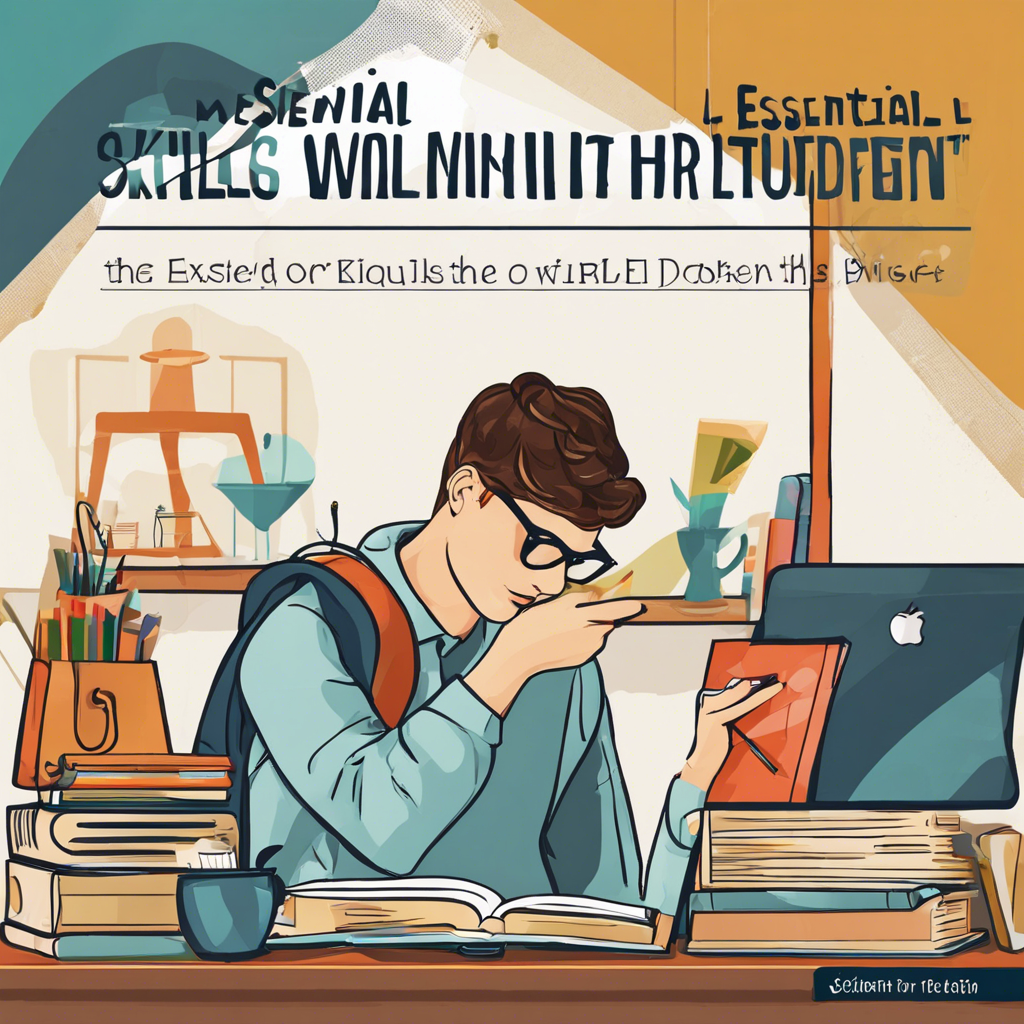The modern student faces a myriad of challenges and opportunities in today’s rapidly changing world. To navigate this complex landscape and set themselves up for success, students need to develop a range of essential skills that extend beyond traditional academic knowledge.
First and foremost, critical thinking and problem-solving abilities are invaluable. With the abundance of information readily available, students must learn to analyze and evaluate information critically, identify biases and inaccuracies, and solve complex problems creatively. This involves cultivating a curious and open mindset, encouraging students to question, explore, and think for themselves.
Effective communication skills are also vital. Students should aim to articulate their thoughts and ideas clearly, both verbally and in writing. This includes active listening, the ability to give and receive constructive feedback, and the confidence to engage in meaningful discussions and debates. Strong communication fosters collaboration, enables the clear presentation of ideas, and builds relationships, all of which are crucial for personal and professional success.
Another key skill is digital literacy, which has become increasingly important in our technology-driven world. Students need to be proficient in using digital tools and platforms for research, communication, and productivity. This includes understanding how to navigate and evaluate online information, protect their digital privacy and security, and utilize technology ethically and responsibly.
Additionally, modern students should cultivate a growth mindset and embrace adaptability. The ability to embrace change, be flexible, and adapt to new situations is invaluable in today’s dynamic world. Students who cultivate a growth mindset understand that challenges and failures are opportunities for growth and development, which helps them build resilience and persist in the face of obstacles.
Time management and organizational skills are also essential for students to master. Effective time management involves setting priorities, managing tasks efficiently, and meeting deadlines. Students who develop these skills are better equipped to handle the demands of their studies and extra-curricular activities, reducing stress and improving overall productivity.
Furthermore, students should recognize the value of collaboration and teamwork, understanding that collective effort often yields richer and more innovative outcomes. Effective collaboration involves active participation, sharing responsibilities, respecting diverse perspectives, and learning to compromise. These skills are highly transferable and will benefit students in their future careers and lives.
Financial literacy is another crucial skill set for modern students. This includes basic money management skills, such as budgeting and saving, as well as understanding debt, investments, and financial planning. Financial literacy empowers students to make informed decisions about their economic future and ensures they have the knowledge to navigate an increasingly complex financial world.
Lastly, cultural awareness and empathy are vital for students to develop global citizenship. Understanding and respecting diverse cultures, perspectives, and experiences broaden students’ worldviews and enhance their ability to communicate and collaborate effectively with people from all walks of life. Empathy fosters compassion, tolerance, and understanding, helping to create a more inclusive and harmonious society.
By developing these essential skills, modern students can navigate the complexities of the 21st century with confidence and resilience, setting themselves up for success in their personal and professional lives and becoming active contributors to a global community.
